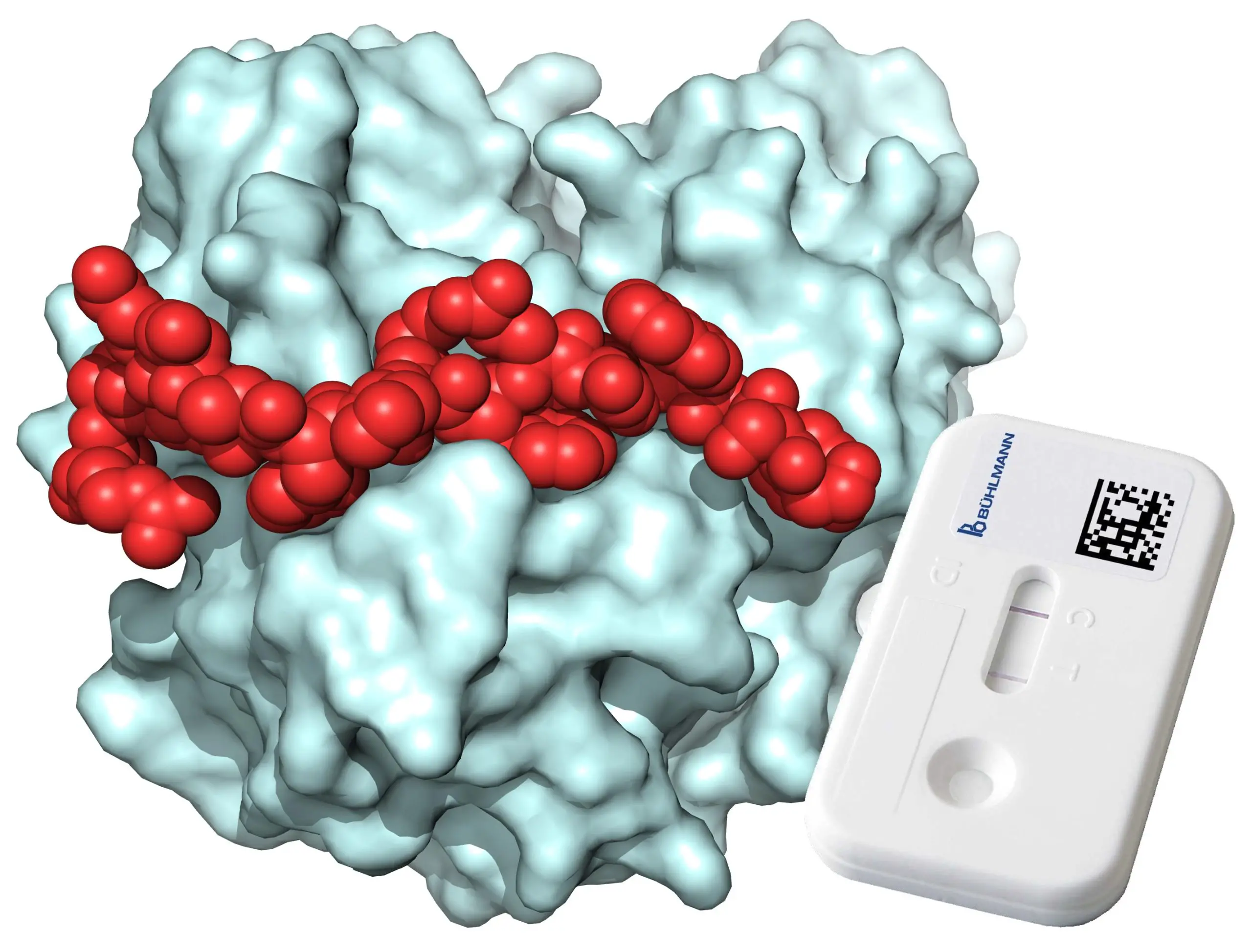Summary of A Game Changer for Inflammatory Disease Detection:
Scientists at BÜHLMANN and EPFL have developed peptides that could provide a more accurate, stable, and cost-effective means for biomarker detection, enhancing the diagnostic power of calprotectin, a protein crucial for diagnosing and monitoring inflammatory disorders. This newly developed peptide is the first synthetic affinity reagent that could be generated against the biomarker calprotectin. The success of the collaboration is attributed to the combination of BÜHLMANN’s know-how to produce and handle the biomarker and the expertise of the EPFL team to generate and screen large combinatorial libraries of peptides by phage display. Further tests are underway to translate this breakthrough into a practical diagnostic product.
*****
Scientists develop peptides for detecting and monitoring inflammatory disorders.
A team of scientists comprising the diagnostics company BÜHLMANN and the École Polytechnique fédérale de Lausanne (EPFL), Switzerland, have developed peptides as an alternative to antibodies for detecting the protein calprotectin that is crucial for diagnosing and monitoring inflammatory disorders. These peptides offer a more stable, accurate, and cost-effective means for biomarker detection, enhancing the diagnostic power of calprotectin.
Calprotectin as a diagnostic biomarker
Calprotectin is a protein biomarker used to diagnose and monitor inflammatory disorders such as ulcerative colitis and Crohn’s disease. Calprotectin concentrations in patient samples are typically measured using antibodies that bind and detect the protein, i.e., in lateral flow assays, such as home COVID-19 test kits. In contrast, serum levels of calprotectin could be used to monitor the inflammation status in rheumatoid arthritis.
Problem with antibody-based assays
One major drawback of antibody-based calprotectin assays is that the results can vary depending on the type of antibody and assay used. This is because antibodies may bind to different sites on the protein or not have uniform composition, or they may become inactivated over time due to precipitation or unfolding.
Peptides as a solution
To address this problem, Christian Gerhold, CTO of BÜHLMANN, worked with the group of Professor Christian Heinis at EPFL to develop human calprotectin ligands based on peptides. In a proof-of-concept study, the team developed a peptide, the first synthetic affinity reagent that could be generated against the biomarker calprotectin. This peptide binds to a large surface region of calprotectin and a specific form of calprotectin, which is the relevant species in patient samples.
Peptides as a stable alternative
Peptides are sequences of up to 50 amino acids that can bind to proteins with high affinity and selectivity. Unlike antibodies, peptides can be produced chemically with high purity and homogeneity. They can be attached to a specific location on a surface, significantly simplifying diagnostic assay development and allowing for a more accurate and controlled way of detecting biomarkers. Moreover, peptides are stable over time and are cheaper to produce than antibodies, with lower inter-batch variability.
The success of the collaboration
The collaboration greatly benefited from BÜHLMANN’s know-how to produce and handle the biomarker and the expertise of the EPFL team to generate and screen large combinatorial libraries of peptides by phage display. In a proof-of-concept study, lateral flow cassettes were prepared, and the calprotectin concentration in serum obtained from patient blood samples was quantified. The high-affinity peptides were developed against calprotectin, and their application as synthetic ligands was demonstrated in diagnostic assays.
Final thoughts
Scientists are now performing more tests with this calprotectin-specific peptide to translate the assay into a product that can bring the diagnostic power of this increasingly important biomarker to a new level, helping patients suffering from inflammatory diseases.


